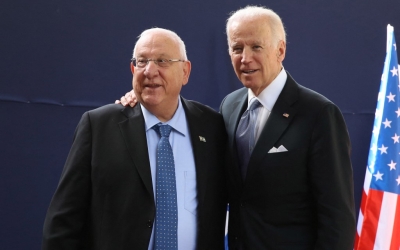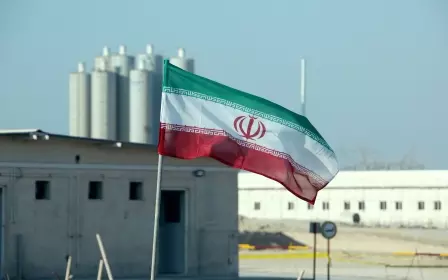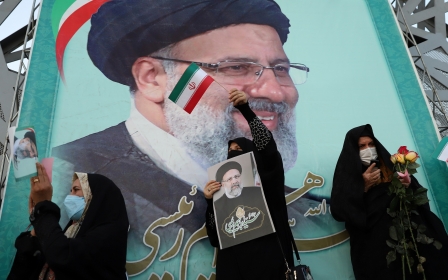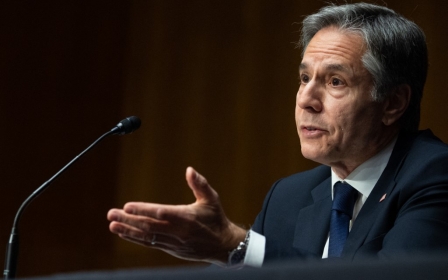'Not on my watch': Iran will never obtain nuclear weapon, Biden tells Israel's Rivlin
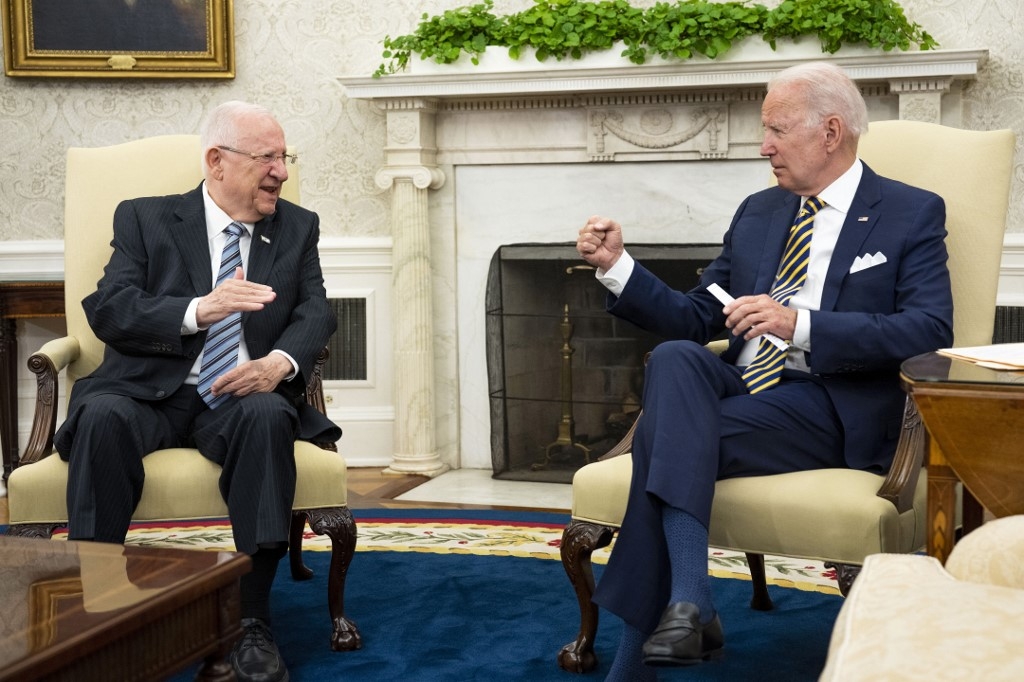
US President Joe Biden declared Iran will never develop a nuclear weapon as long as he is in the White House, after he reassured Israeli President Reuven Rivlin of the "ironclad" relationship between the US and Israel.
"Iran will never get a nuclear weapon on my watch," Biden said ahead of an Oval Office meeting with Israel's outgoing president on Monday.
Stay informed with MEE's newsletters
Sign up to get the latest alerts, insights and analysis, starting with Turkey Unpacked
While the US continues to work towards a nuclear deal with Iran, Israel and some neighbouring Arab powers remain concerned that the resumption of the accord may eventually allow Tehran to acquire atomic weapons despite the fact that the deal is specifically designed to curtail Iran's nuclear enrichment.
During his comments on Monday, Biden also addressed Sunday's air strikes against Iranian-backed militias in Syria and Iraq, saying that he "directed last night’s air strikes targeting sites used by Iranian-backed militia groups in response to recent attacks on US personnel in Iraq".
In a statement about the meeting, the White House said Biden "assured President Rivlin that the United States remains determined to counter Iran's malign activity and support for terrorist proxies, which have destabilizing consequences for the region".
Biden's comments were expected, as the US President has repeatedly stressed Washington's "ironclad" support and "unwavering commitment" for what he described as Israel's right to defend itself.
'We count on you'
During the White House news conference, Rivlin said he was "delighted" to be meeting with Biden, adding that "Israel has no greater friend or ally than the United States of America".
"You are our best friends, and we [share] values of democracy and liberalism," Rivlin said.
"And, according to a real friendship, we can, from time to time, discuss matters and even agree not to agree on everything," he continued, seemingly hinting at the Iran nuclear deal.
"But we count on you," Rivlin told Biden. "Your declaration just now brought Israelis to understand that we have a great friend at the White House."
Thanking his Israeli counterpart for making the trip, Biden said new Israeli Prime Minister Naftali Bennett is expected to visit Washington "very soon".
"My team and I are already working closely with the Israeli government that took office earlier this month," Biden said, adding that he was "looking forward" to hosting Bennett.
Normalisation and Palestine
Regarding Israel's occupation of Palestine, Biden emphasised "the importance of Israel taking steps to ensure calm, stability, and to support greater economic opportunities for the Palestinian people".
"President Biden affirmed his view that a negotiated two-state solution remains the best avenue to achieving a lasting peace," during his Oval Office meeting with Rivlin, the White House statement added. "The leaders discussed the importance of enhancing efforts to strengthen moderate voices and promote the cause of coexistence while weakening extremists who advocate for hatred and violence."
Biden also praised the normalisation deals that his predecessor had helped secure between Israel and a number of Arab and Muslim countries.
"The US fully supports normalisation of the relationship between Israel and Middle Eastern countries that you’re making some headway on - in Africa as well," Biden said. "And beyond the important progress, we are really looking forward to building a wider block of peace and stability."
Later on Monday Rivlin also met with UAE Ambassador to the US Yousef al-Otaiba, thanking him for his "key role" in the normalisation deals between Israel and several Arab states.
Speaker of the House Nancy Pelosi, a Democrat, also welcomed Rivlin on Monday, taking a meeting with the Israeli President with a group of bipartisan lawmakers on Capitol Hill.
"Support for Israel has always been and will continue to be bipartisan due to our shared values and mutual security concerns," Pelosi said on Twitter following the meeting.
Middle East Eye delivers independent and unrivalled coverage and analysis of the Middle East, North Africa and beyond. To learn more about republishing this content and the associated fees, please fill out this form. More about MEE can be found here.


